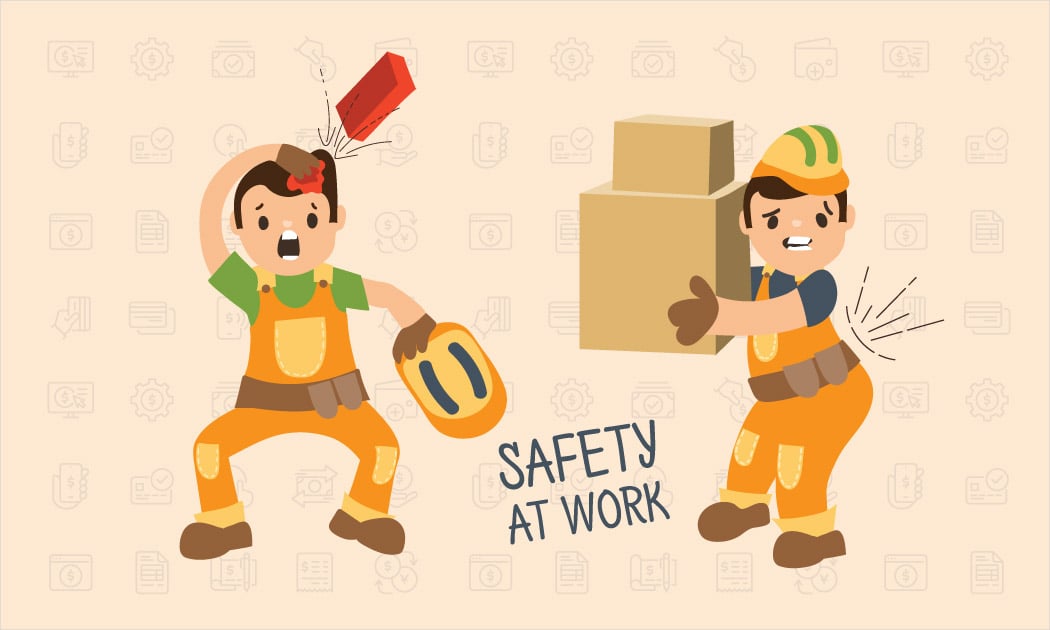The Payroll Blog
News, tips, and advice for small business owners
- Home
- Resources
- Payroll Blog
- Do I Need Workers' Compensation?
Do I Need Workers' Compensation Insurance?

If you've recently started your own business or just hired your first employee, you're probably wondering if you need workers' compensation insurance. After all, as a business owner, you want to make sure that your company and your employees are protected in case an accident occurs on the job. You also want to make sure that you find a plan that meets applicable state requirements and falls into a price point that you can afford. We have the tips on how to get workers comp for your business below.
What is workers’ compensation insurance?
Workers’ compensation is a type of insurance that funds an employee' medical related cost due to any illnesses or injuries related to their role at work. It also covers wages that an employee loses after an injury or illness.
For example, if one of your employees falls and breaks his or her leg, medical bills are generally covered under workers’ compensation insurance. If your transcriptionist gets carpal tunnel as a result of constant typing day after day, this employee could also receive benefits for his or her injury.
Workers' compensation insurance also acts as a safeguard for your company, oftentimes greatly reducing an employee's ability to sue your company in case of an injury, illness, or accident.
How does workers’ compensation insurance work?
If your employee just got hurt on the job, or you want to know the ins and outs of how this type of insurance works before you choose a plan.
If an accident, injury, or illness occurs on the job, it's the employee's responsibility to report it to a superior as soon as possible. Depending on your state, there is a defined time frame that the employee must report their injury and file a claim for it to be valid. In many cases, the employee will seek medical care first before a claim is made, especially if it's a serious accident that requires immediate attention. The superior will then give the employee a form to complete detailing the claim. After the paperwork is completed, that claim will be forwarded to the insurance company.
The insurance company will assign the employee a specialist who will be their point of contact throughout the entire claim process. They'll be able to answer any questions the employee has about lost wages, disability benefits, medical care, and rehabilitation needs. In most cases, when the employee visits a medical specialist, the bill will be forwarded directly to the insurance agency.

Is workers’ compensation insurance mandated? Do I need it for my small business?
While the laws regarding workers’ compensation insurance vary by state, as a small business owner you should determine whether you should have workers’ compensation insurance coverage as soon as you have an employee to help ensure that your employee and business are protected in the event of an incident. Some states have different requirements according to the number of employees a business has. Failure to comply with applicable state workers’ compensation insurance laws can lead to heavy fines and even criminal charges.
In some states, employers may not be required to carry workers’ compensation insurance coverage for certain types of jobs. For example, several states allow certain real estate brokers to be excluded from coverage. In other states, domestic and agricultural workers, as well as independent contractors, are excluded.
Some states determine what businesses need workers' compensation insurance coverage based on the number of employees they have. If you only have three or fewer employees, you may be exempt from state-mandated workers’ compensation insurance.
Visit the U.S. Department of Labor's State Workers' Compensation Officials website and click on your state to see what laws may apply for your particular industry and state. You also have the option to reach out directly to your local agent if you have any questions.
How do I get workers' compensation insurance for my small business?
The first step you should take before you purchase small business workers’ compensation insurance is to learn what your state's requirements are. Once you've determined that you are indeed required by law to hold workers’ compensation coverage, you'll need to find an insurance provider.
To get small business workers’ compensation insurance, there are a number of marketplaces and insurance providers that will help you get the coverage you need. At SurePayroll, we partner with Paychex Insurance Agency Inc. to provide workers’ compensation insurance that works on an affordable, pay-as-you-go plan. You can call us at 877-956-7873 to chat with one of our licensed professionals. Our team is dedicated to pairing you with the best workers’ compensation insurance for small business owners. We're often able to save our customers up to 20% on their worker's compensation insurance premiums.
What does workers' compensation cover?
Workers' compensation generally covers medical costs associated with an injury or illness suffered by you’re a covered employee while on the job or performing job-related duties. This may include doctor visits and medical bills, rehabilitation costs, and medication. While your employee is recovering, your insurance will cover part or all of the wages they lose as a result of their illness or injury. In case the worst happens, workers' compensation insurance will cover funeral costs and provide the deceased employee's family with death benefits.

What does workers' compensation not cover?
Workers' compensation insurance doesn't cover any accident that may have occurred outside the job. Also, if one of your employees gets hurt because he or she started a fight, violated company policy, or got hurt while committing a crime, they are generally not covered under workers' compensation insurance.
How much does it cost to get workers' compensation insurance?
The cost of a workers’ compensation insurance plan depends largely on a handful of factors, including the total annual payroll for all employees, and what type of job they perform.. An experience modifier is a number assigned to your business that consists of a comparison of your company's loss experience with other businesses in your industry. Businesses with a favorable experience modifier tend to have lower premiums than those who have a below average experience modifier.
Most states classify employees according to the class codes established by the National Council on Compensation Insurance (NCCI). This organization monitors statistical data to determine what types of jobs are most at risk for injuries and what rates should be charged for each job classification. For example, the workers' compensation premiums associated with a clerical worker will be much lower than for employees who work in construction or another manual labor job that puts them at higher risk for serious injury.
Not having workers' compensation insurance can lead to serious trouble for your business, including hefty fines and the potential for employee-led lawsuits.
Insurance sold and serviced by Paychex Insurance Agency, Inc., 150 Sawgrass Drive, Rochester, NY 14620. CA License 0C28207. The Paychex Insurance Agency Workers' Compensation Payment Service is available in all states except Alaska, Hawaii, North Dakota, Ohio, Washington, and Wyoming.
Related Blog Posts
View Our Plans and Pricing
Small Business Is Our Business.
This website contains articles posted for informational and educational value. SurePayroll is not responsible for information contained within any of these materials. Any opinions expressed within materials are not necessarily the opinion of, or supported by, SurePayroll. The information in these materials should not be considered legal or accounting advice, and it should not substitute for legal, accounting, and other professional advice where the facts and circumstances warrant. If you require legal or accounting advice or need other professional assistance, you should always consult your licensed attorney, accountant or other tax professional to discuss your particular facts, circumstances and business needs.

